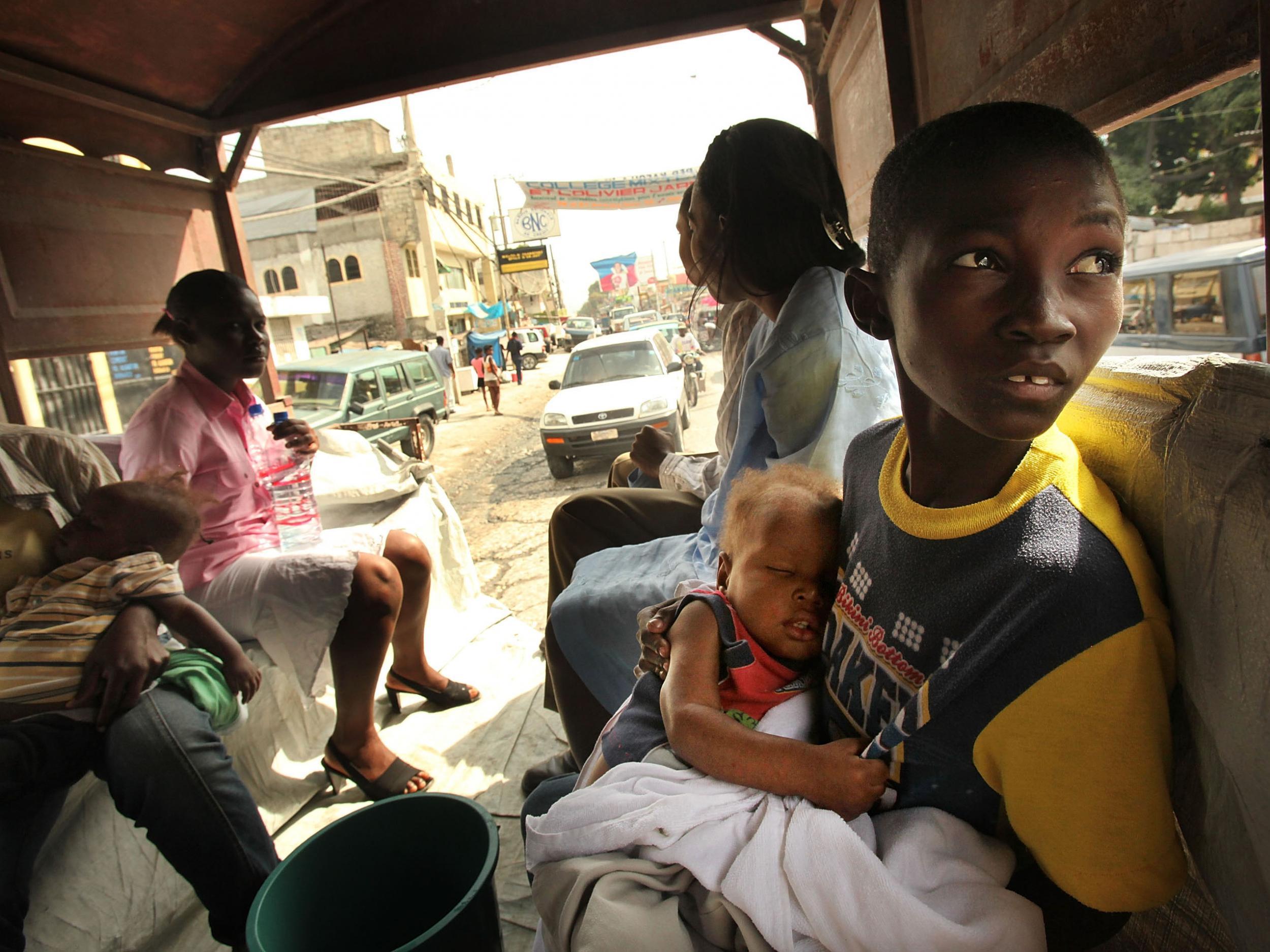UN admits playing role in cholera outbreak that killed almost 10,000 people in Haiti
'It is high time for the UN to prove that human rights for all means for Haitians too,' says lawyer

The United Nations (UN) has admitted playing a part in starting a cholera epidemic that killed thousands in Haiti after an earthquake rocked the Caribbean nation in 2010.
Farhan Haq, a spokesperson for the office of UN Secretary-General Ban Ki-moon, admitted for the first time that UN peacekeepers were involved in the initial spread of the disease in the country.
A new UN response is now needed to resolve the six-year crisis, he added.
“Over the past year, the UN has become convinced that it needs to do much more regarding its own involvement in the initial outbreak and the suffering of those affected by cholera," Mr Haq said.
“[A] new response will be presented publicly within the next two months, once it has been fully elaborated, agreed with the Haitian authorities and discussed with member states.”
The comments come after years of denial from high-level UN officials regarding their involvement in the crisis.
Official statistics put the number of deaths from the epidemic at 9,200, with a further 800,000 made ill by the disease.
Some studies have said the total is far higher. Doctors without Borders place the total deaths at almost three times the official number.
Haiti is the poorest country in the Western Hemisphere, with more than 55 per cent of the population living in poverty.
The cholera outbreak in 2010 came ten months after a devastating earthquake that killed 220,000. In the muddy and overcrowded temporary camps set up to house displaced citizens, the infection spread rapidly.
Six years after the disease was first seen in Haiti, the infection still flares up intermittently and continues to kill people. In March, an average of 37 cholera deaths a month were recorded.
The outbreak began near a base where 454 Nepali peacekeepers were housed, according to local findings. Cholera was rife at the time in Nepal, but had never before occurred in Haiti. Waste from the base leaked into the river, encouraging the spread of the disease. UN officials have insisted the origin of the epidemic is undetermined.
One recent draft report by a UN advisor and sent to the Secretary-General, said the cholera crisis, “would not have broken out but for the actions of the United Nations,” The New York Times reported.
Mario Joseph, a Haitian human rights lawyer representing victims of the epidemic, told the Associated Press: "This is a major victory for the thousands of Haitians who have been marching for justice, writing to the UN and bringing the UN to court.
"It is high time for the UN to make this right and prove to the world that 'human rights for all' means for Haitians too."
The UN has still not accepted any legal responsibility for the deaths or agreed to compensate the families of those affected.
“I don't believe that this is something that we're describing one way or another as reparations,” Mr Haq said, “our legal position on this issue has not changed since the last times that we've been discussing this [sic].”
Mr Ban promised a fund of $2.3 billion to fight cholera, but has not yet raised the total from member states.
Join our commenting forum
Join thought-provoking conversations, follow other Independent readers and see their replies
Comments